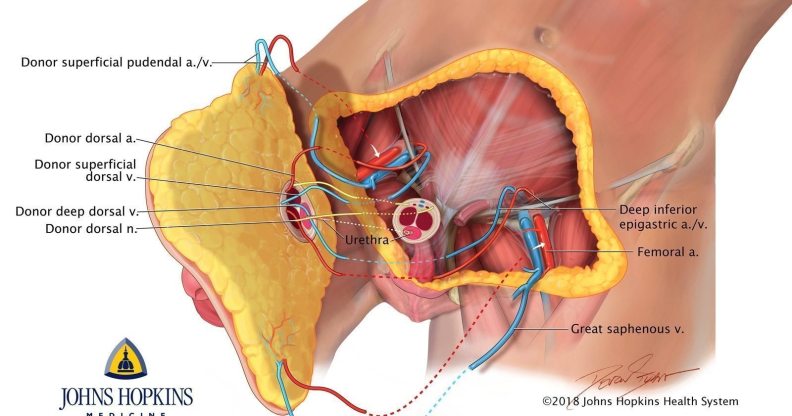Hospital performs first ever penis and scrotum transplant

The world’s first ever full penis and scrotum transplant has been successfully performed by doctors.
The pioneering surgery, which was carried out at Johns Hopkins University in Baltimore in March, took 14 hours and 11 surgeons to complete.
Doctors transplanted a deceased donor’s entire penis and scrotum onto a young US army veteran, who lost his genitals during combat.
“We are hopeful that this transplant will help restore near-normal urinary and sexual functions for this young man,” said Johns Hopkins’ W.P. Andrew Lee, M.D. in a statement.
In a bid to replace the soldier’s missing abdominal wall, scrotum and penis after he sustained the injury in Afghanistan, the doctors decided to embark upon the surgery to replace “like with like.”
“We’ve really replaced like with like,” surgeon Dr Richard Redett told Sky News.
“We looked at the defect our patient had and procured the exact same graft from our donor.”

“It’s a real mind-boggling injury to suffer, it is not an easy one to accept,” the anonymous veteran said in a statement published by the hospital.
“When I first woke up, I felt finally more normal… [with] a level of confidence as well. Confidence… like finally I’m okay now,” he added.
The average victim of a genital injury in service is just 24 years old, according to the Bob Woodruff Foundation’s report “Intimacy After Injury,” with more than a thousand soldiers having lost their genitals during combat.
Although the procedure is still classified by doctors as experimental, hopes are high for what the procedure could offer trans men in the future.
However, a series of ethical questions and other health concerns are on doctors’ minds before the surgery is rolled out to the general public.
The medical professionals did not transplant the donor’s testes, as it would have given the man the potential to have children.
“We just felt there were too many unanswered ethical questions,” surgeon Damon Cooney told Sky News.
The complexity of the surgery means that the man in question is having to take a series of immunosuppressant drugs in order to prevent his body from rejecting the transplant.

